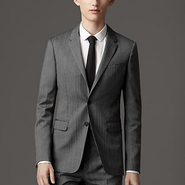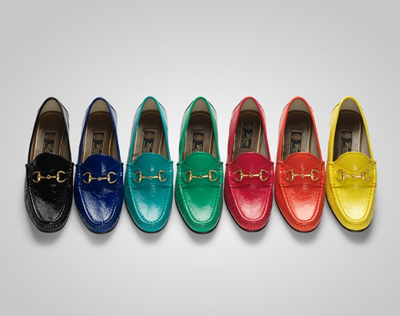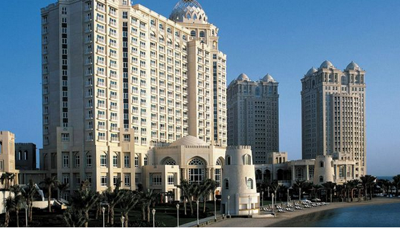
Fairmont, Four Seasons and Burberry ranked among the top 10 in L2's latest study that assesses the digital proficiency of brands active in the Middle East and finds many areas that call for greater cultural sensitivity.
While Fairmont Hotels and Resorts is applauded for its well-rounded digital presence, the 2013 Digital IQ Index: Middle East Prestige study found that Four Seasons Hotels and Resorts specializes in surveying the culinary landscape and Burberry has powerful ecommerce options. Thirty-seven percent of brands studied have global Web sites that cater to Middle Eastern consumers, and 57 percent of these do so through a local domain name.
"There was a clear bifurcation between brands in the Index that are investing in the region and those that are not," said Ari Wolfe, lead researcher at L2 Think Tank, New York.
"Brands that scored the highest Digital IQs offered Arabic language functionality, region-specific site collateral, culture and language-appropriate social media content and a mobile application presence," he said.
"Hotels as a category performed the best, which is not surprising given the high level of revenue per available room sustained in the region."
L2's 2013 Digital IQ Index: Middle East Prestige study examines 81 global and 13 local prestige brands. Brand evaluations are weighted by the following criteria: 30 percent Web site, 30 percent digital marketing, 20 percent social media and 20 percent mobile.
Easy sales, lost sales
The study found that almost 75 percent of ecommerce enabled Web sites belong to hotel brands. Bottega Venetta, Gucci and Burberry are the only non-hotel brands selling online in the region.
 Gucci Loafers
Digital marketplaces such as soug.com and cobone.com have capitalized on ecommerce deficiencies. Ninety-four percent of global brands excluding auto and hotel are listed on a marketplace, with an average of 198 products available per brand.
Products listed on these marketplaces are often sold at steep discounts that plunge as much as 80 percent.
Lack of clarity
Although almost all global Web sites feature store locators, only 36 percent are in a native language, which hinders in-store traffic.
For example, The Four Seasons Doha, Qatar page offers an in-depth look at the property and its surrounding area but does not exist in an Arabic form.
Gucci Loafers
Digital marketplaces such as soug.com and cobone.com have capitalized on ecommerce deficiencies. Ninety-four percent of global brands excluding auto and hotel are listed on a marketplace, with an average of 198 products available per brand.
Products listed on these marketplaces are often sold at steep discounts that plunge as much as 80 percent.
Lack of clarity
Although almost all global Web sites feature store locators, only 36 percent are in a native language, which hinders in-store traffic.
For example, The Four Seasons Doha, Qatar page offers an in-depth look at the property and its surrounding area but does not exist in an Arabic form.
 Four Seasons Doha, Qatar
Email has the potential to drive in-store traffic, but 13 percent feature Arabic text and 27 percent are personalized. Burberry adeptly leveraged email by reaching out to consumers at the end of Ramadan.
Global brands are also woefully absent on many social media pages, with only 41 percent active on Facebook and 20 percent on Twitter.
Fairmont has a solid mobile-optimized Web site that streamlines booking on-the-go and Burberry's mobile site permits access to loyalty programs and features geolocation for the store locator.
Flashes of life
L2 found that Bloomingdale's Dubai location actively produces original content for its Facebook page to keep the in-store experience lively. For example, the retailer offered two Bloomingdale's Fashion Show tickets to the first five fans who said a promoted hashtag at the brand's desk on the ground floor of the Dubai Mall.
The Ritz-Carlton has demonstrated alacrity when adapting to Twitter and Foursquare and its application features tips on things to do and see in Dubai, which is shaping up to be one of the world's leading travel destinations.
Other luxury brands that ranked in the top 20 include Gucci and Chanel.
"The Middle East as a region has yet to embrace eccommerce," Mr. Wolfe said.
"Also of note is that some companies in countries like Kuwait and Saudi Arabia are even using Instagram as an ecommerce platform, posting pictures of items for sale and including contact information to complete a transaction."
Final take
Joe McCarthy, editorial assistant on Luxury Daily, New York
Four Seasons Doha, Qatar
Email has the potential to drive in-store traffic, but 13 percent feature Arabic text and 27 percent are personalized. Burberry adeptly leveraged email by reaching out to consumers at the end of Ramadan.
Global brands are also woefully absent on many social media pages, with only 41 percent active on Facebook and 20 percent on Twitter.
Fairmont has a solid mobile-optimized Web site that streamlines booking on-the-go and Burberry's mobile site permits access to loyalty programs and features geolocation for the store locator.
Flashes of life
L2 found that Bloomingdale's Dubai location actively produces original content for its Facebook page to keep the in-store experience lively. For example, the retailer offered two Bloomingdale's Fashion Show tickets to the first five fans who said a promoted hashtag at the brand's desk on the ground floor of the Dubai Mall.
The Ritz-Carlton has demonstrated alacrity when adapting to Twitter and Foursquare and its application features tips on things to do and see in Dubai, which is shaping up to be one of the world's leading travel destinations.
Other luxury brands that ranked in the top 20 include Gucci and Chanel.
"The Middle East as a region has yet to embrace eccommerce," Mr. Wolfe said.
"Also of note is that some companies in countries like Kuwait and Saudi Arabia are even using Instagram as an ecommerce platform, posting pictures of items for sale and including contact information to complete a transaction."
Final take
Joe McCarthy, editorial assistant on Luxury Daily, New York
